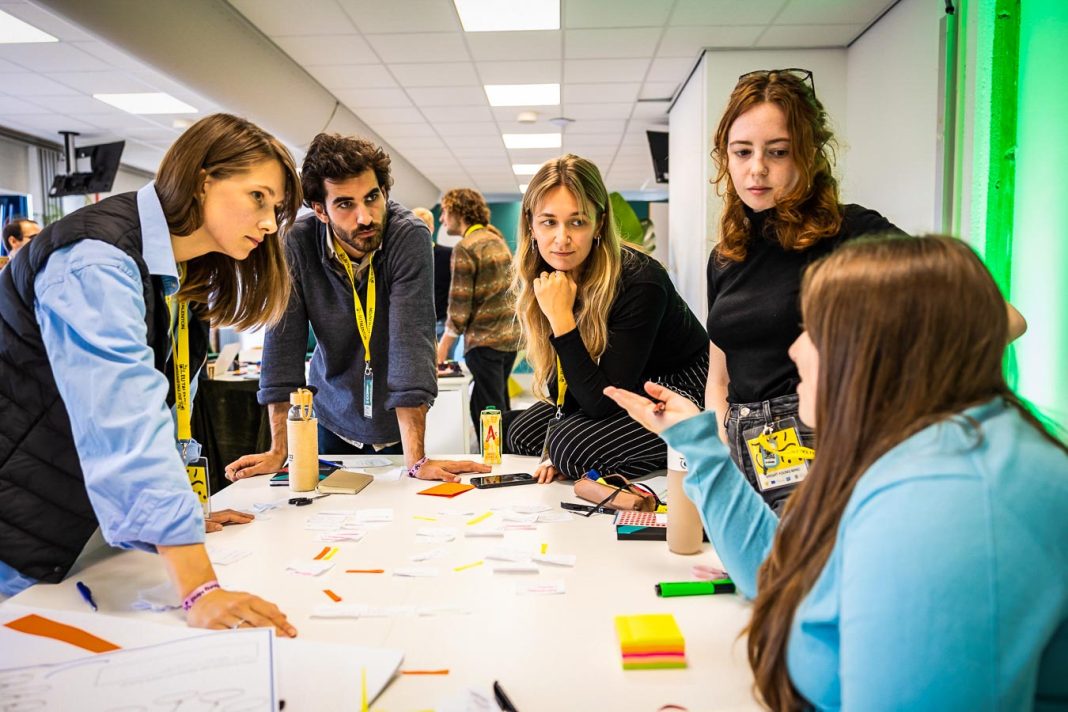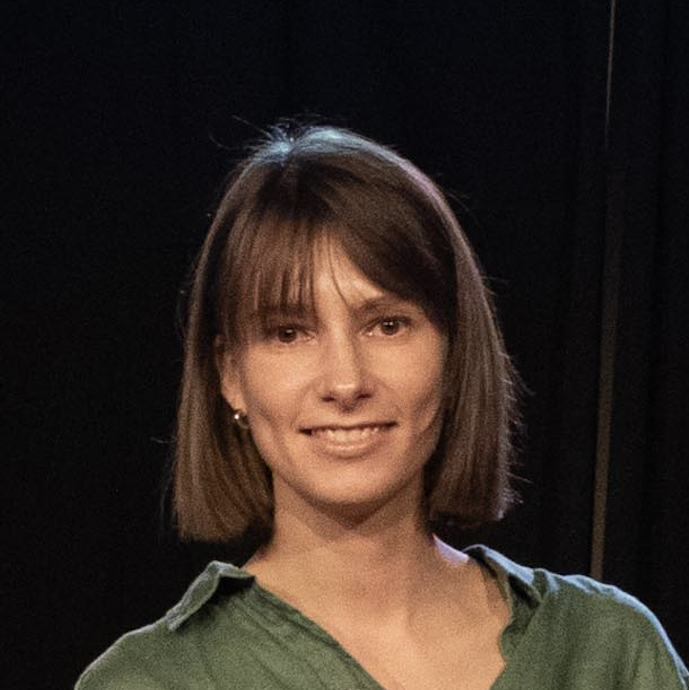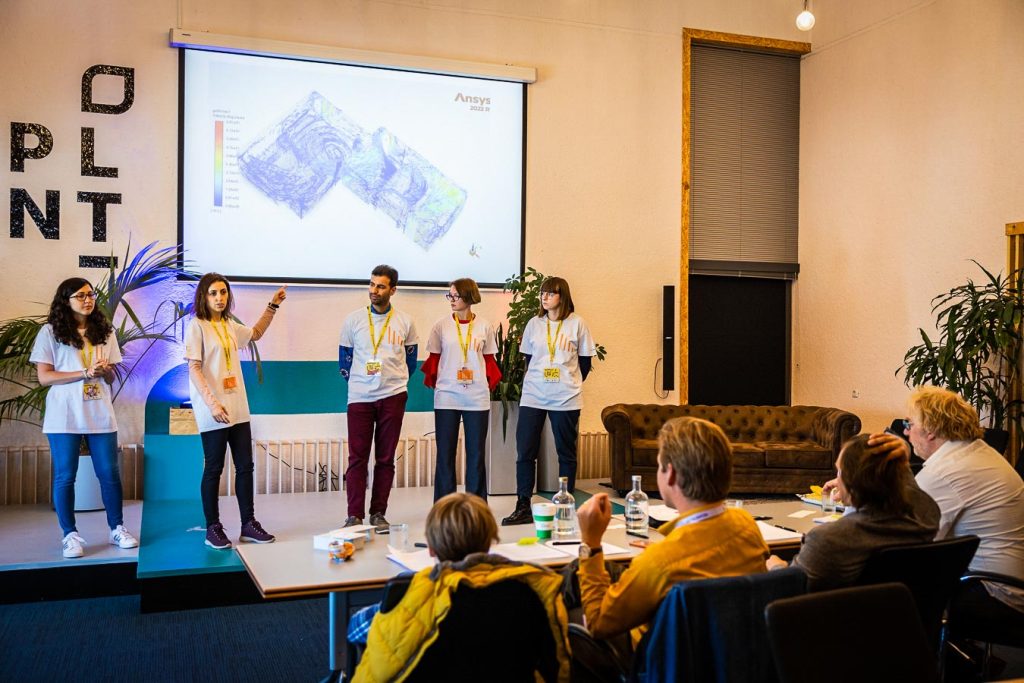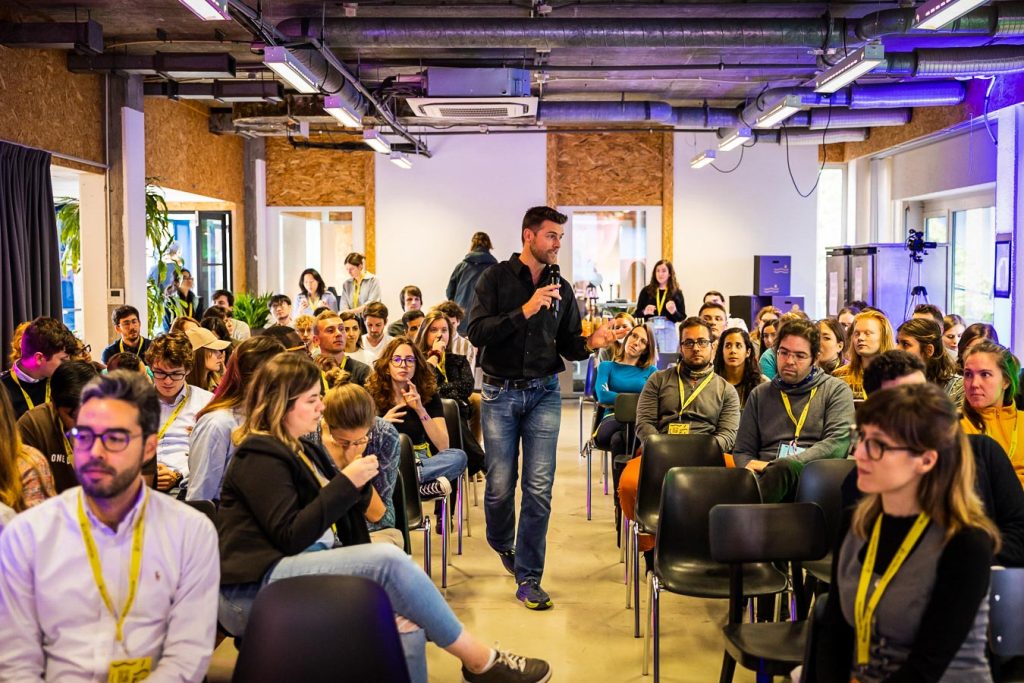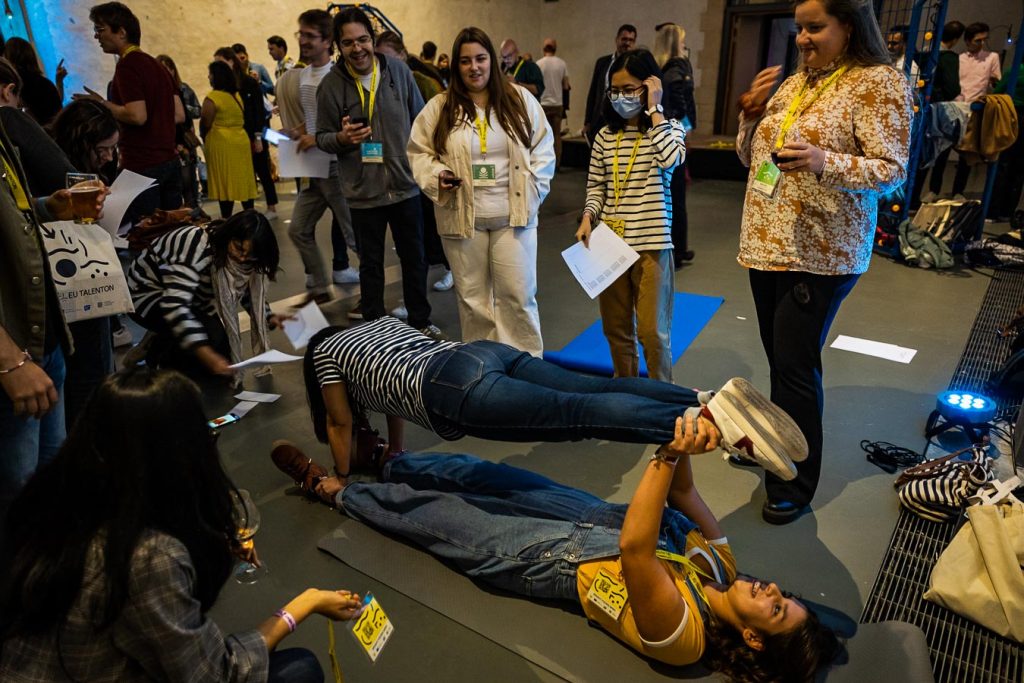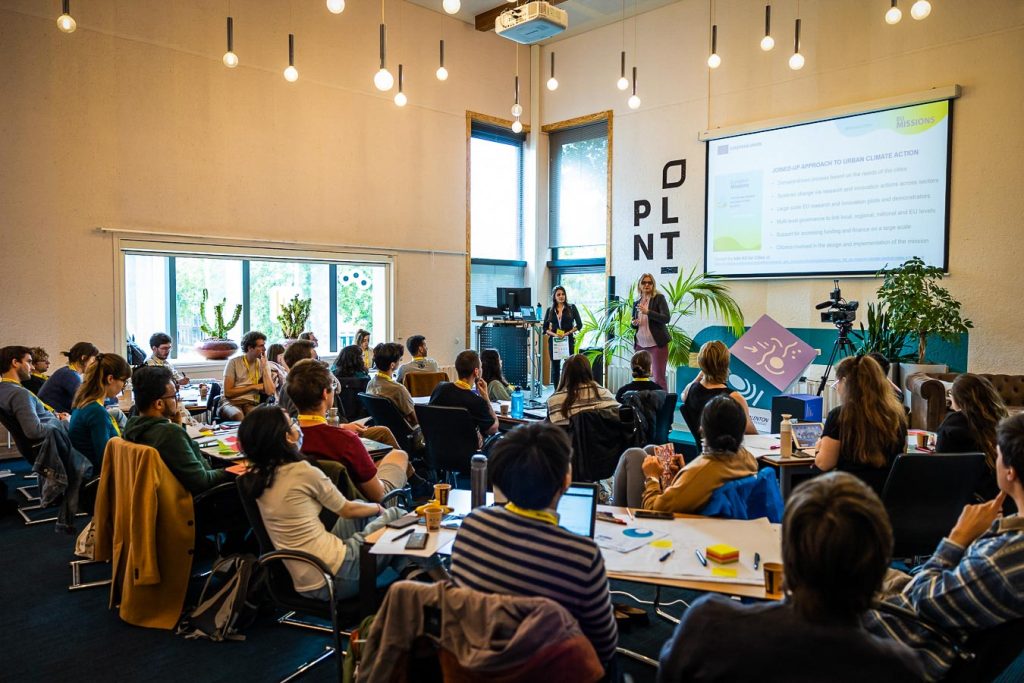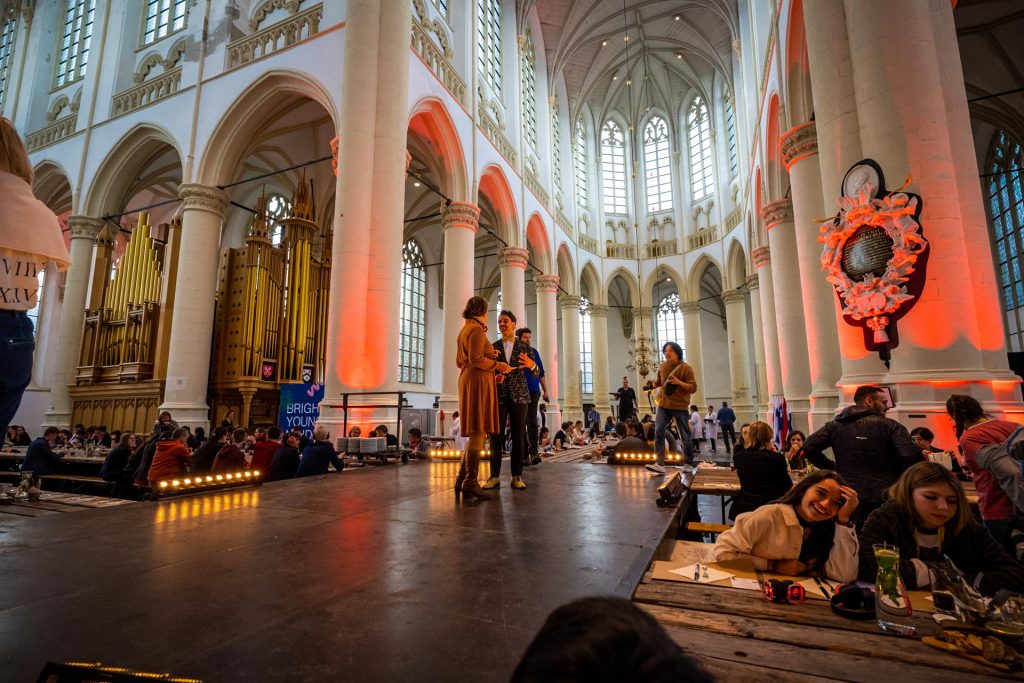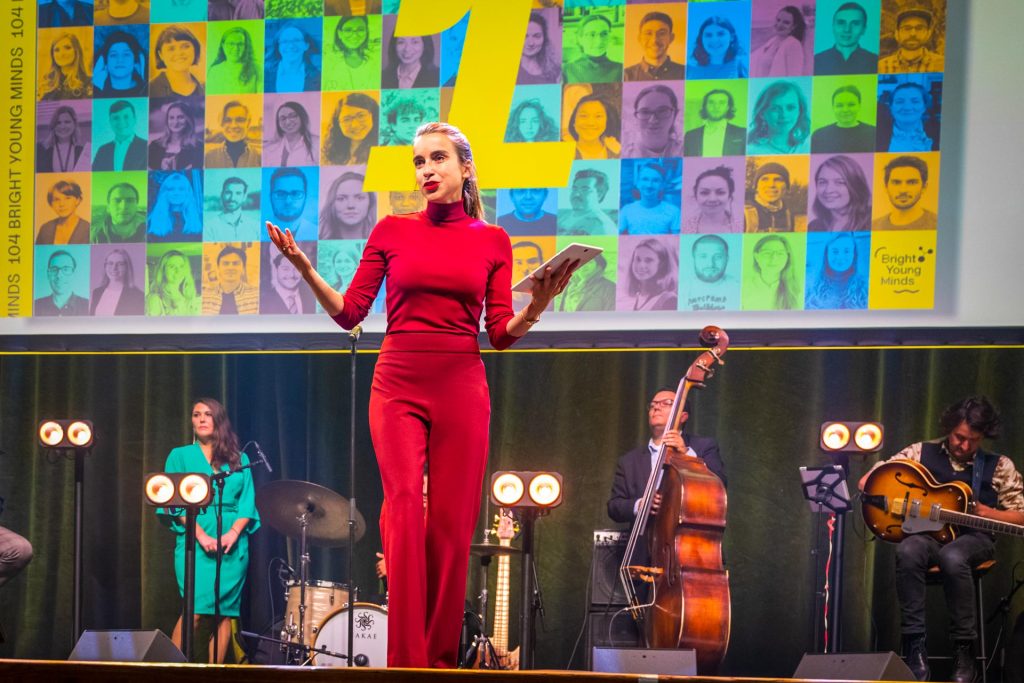This article was written for CityChangers.com by Elizaveta Fakirova, a PhD candidate and researcher in the field of urban green infrastructure governance at the Technical University of Munich, Germany. Here she shares a personal experience of the intensive solution-focussed EU TalentOn programme, where young scientists prove how fresh thinking and collaboration can summon up highly-impactful ideas at a surprising pace. We thank Elizaveta for her insights.
As a young professional, I am constantly looking for opportunities for my personal and professional development. Knowing this, my friend Regina Schröter from All Things Urban one day dropped me a message on LinkedIn: “This is for you”. Thus began my journey to the first ever EU TALENTON.
EU TalentOn Is…
EU TalentOn is an initiative run by the European Commission co-created with Leiden, the 2022 European City of Science. It aims to bring together young scientists in order to think of ready-to-action solutions to tackle 5 missions of the EU: adaptation to climate change, cancer, climate-neutral & smart cities, restore our oceans & waters, and a soil deal for Europe.
It is like a hackathon for software developers, but for scientists and researchers aged 21-35 who provide solutions based on evidence. For this goal, 104 candidates were selected out of more than 700 applications from 34 countries across Europe, and assigned in 26 teams.
I Believe This is Important Because…
One of the most common concerns about writing a Ph.D. thesis is that it is too theoretical, and young professionals often do not know how to apply the knowledge they produced to real life, and so often the thesis is left lying in a desk drawer.
Such programmes as EU TalentOn help us to think more pragmatically and equip participants with the basics on how knowledge could be converted in a real applicable model. We had several workshops on various brainstorming strategies, business modeling, the Lean Startup method, public pitches and presentations, and fundraising. These fundamentals helped us to gain insight into how science can move beyond academic articles and take the form of tangible impact.
Information is the new gold these days, however, we must learn how to use it wisely.
.
Practical Ways to Tackle Climate Change (and Other Issues)
What if climate change or cancer had its own loud sound like an ambulance? Then we would all immediately pay attention to this and be more aware of how these issues can affect us. Unfortunately, this is not the case, and technologies like AI, IoT, Blockchain, VR [virtual reality] and other modern tech play a role in bringing to light issues that are still being neglected.
If talking about climate change specifically, it can help to:
- identify the urban areas and social groups most affected by heat or floods;
- estimate where actions should be taken first and measure their impact;
- connect communities with the local municipalities;
- improve the processes.
Tech-based solutions are effective because they are tangible. The right use of technology can alleviate a wide range of site-specific problems at different levels and scales and enable the solution to be adaptive, which is critical when dealing with the unpredictable impacts of climate change and other pressing issues.
Participation & Collaboration
Collaborative engagement began the day we arrived. After our first dinner together, we had a sports-intellectual contest where we had to do several tasks from a quiz to planking for 3 minutes. I never thought that my CrossFit classes would someday be helpful in my academic life.
Participation within the groups was the center of the whole programme, however I know that some allocated the tasks within the team and worked independently. In our case, we generated all ideas together, discussed them, and also made a choice collaboratively. At some points, we shared responsibility. This way we managed to become a close-knit team, where no one ‘hogged the blanket’, but worked for the joint interest of the group.
Bringing together more than 100 people in just 4 days is not an easy task, however Vivian Toemen, Lucien Geelhoed and the entire team that organized TalentOn showed an amazing level of creativity. With additional activities such as a silent disco, the awards ceremony, and especially the farewell dinner at the gothic church Hooglandse Kerk in the center of Leiden, they created a sense of unity and an unforgettable experience.
.
Our Mission, the Challenges & How We Coped With It
Our team – 451 (the name was inspired by Ray Bradbury’s dystopia Fahrenheit 451) – worked on adaptation to climate change. Our foursome – Juliette Harty de Pierrebourg, Linda Bomm, Fernando Morales de Rueda, and I, quickly found a common language. It was also important that we talked at the start about our expectations and did not forget to have fun while working hard.
We had only one very hot discussion where we couldn’t come to a consensus. To avoid the conflict, we simply sought the opinion of Henrik Scheel, who was the mission navigator.
For other points of contention, we have given our veto power to our buddy – a kind of group manager – Jessica Smits, who was of help to our team during the entire programme.
The programme provided various possibilities to have a side opinion – other participants, invited experts, and our mission arena manager Edward van der Hout. Transparent communication is key to resolving challenging issues.
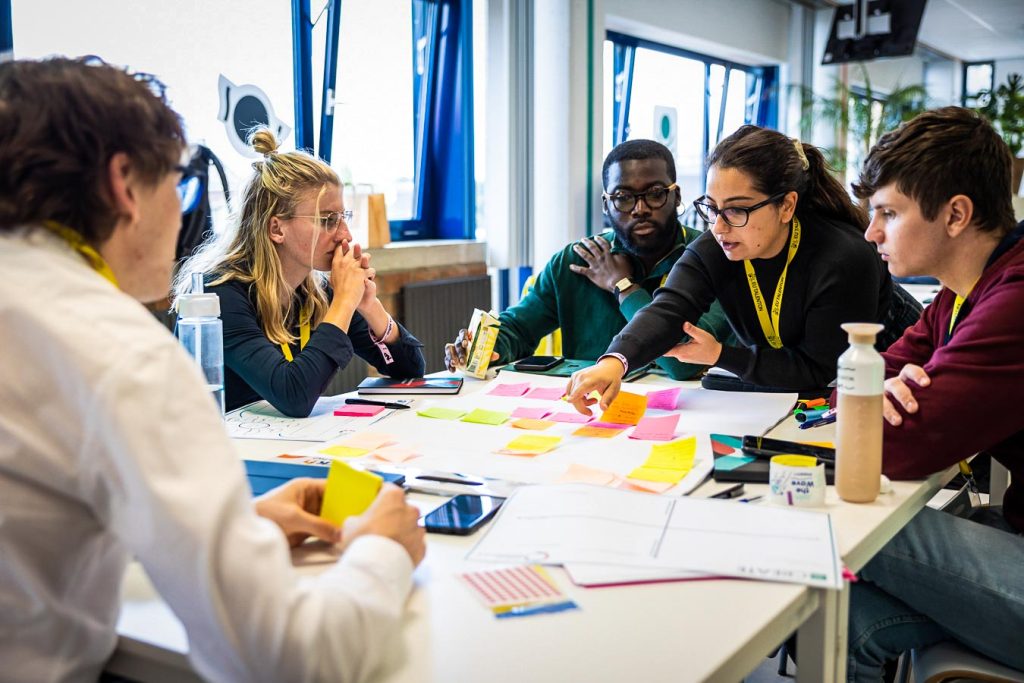
The Game, Set, Adapt! team 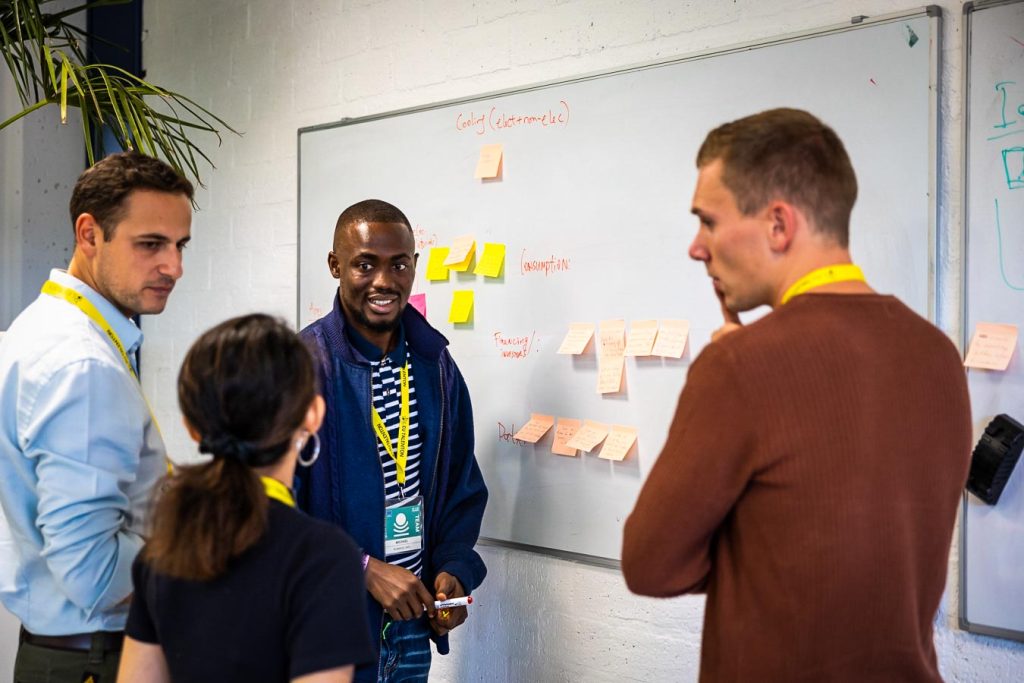
The Klimaso team 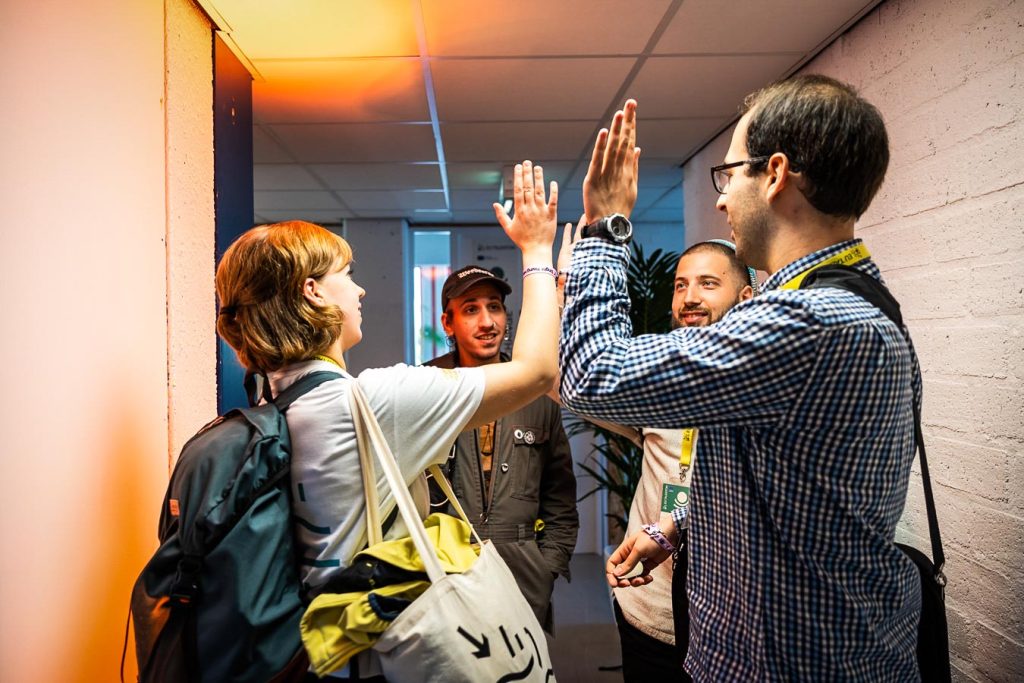
The Root Campers team
.
Project Outcomes & Next Steps
We focused on finding ways to combat urban heat by bringing more nature into urban areas. Trees and other greenery provide shade and evaporate water, thereby reducing air temperature, but the lack of available space for them remains an important problem.
As a solution, we proposed a platform that matches those who own space with those who are interested in greening. “It is like a Tinder for green spaces, but with the added benefit that a tree will never ever ghost you” – that is how my teammate, Linda, described it.
As a team we don’t have plans to continue working on this idea, however the knowledge we gained definitely will be of use for our future projects.
As an urban green infrastructure professional, I’m glad that this topic is gaining traction; beside ours, two other solutions focused on nature.
The 1st prize team, Soilfix, provided a solution focused on restoring urban soils and converting concrete surfaces into green spaces by empowering the local communities, and the Klimaso team focused on creating “green umbrellas” – constructions that improve the overall experience of being in the urban jungle. Some of the participating teams plan to continue working together on solutions, and I find that very motivating.
It is possible to find all winning projects here.
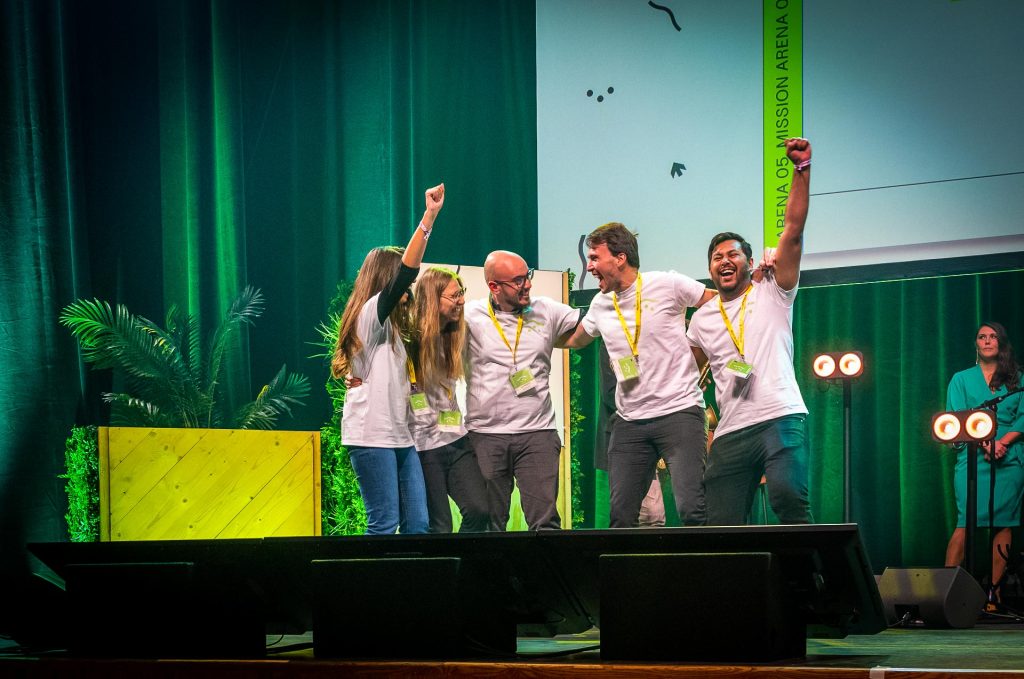
The SoilFix team 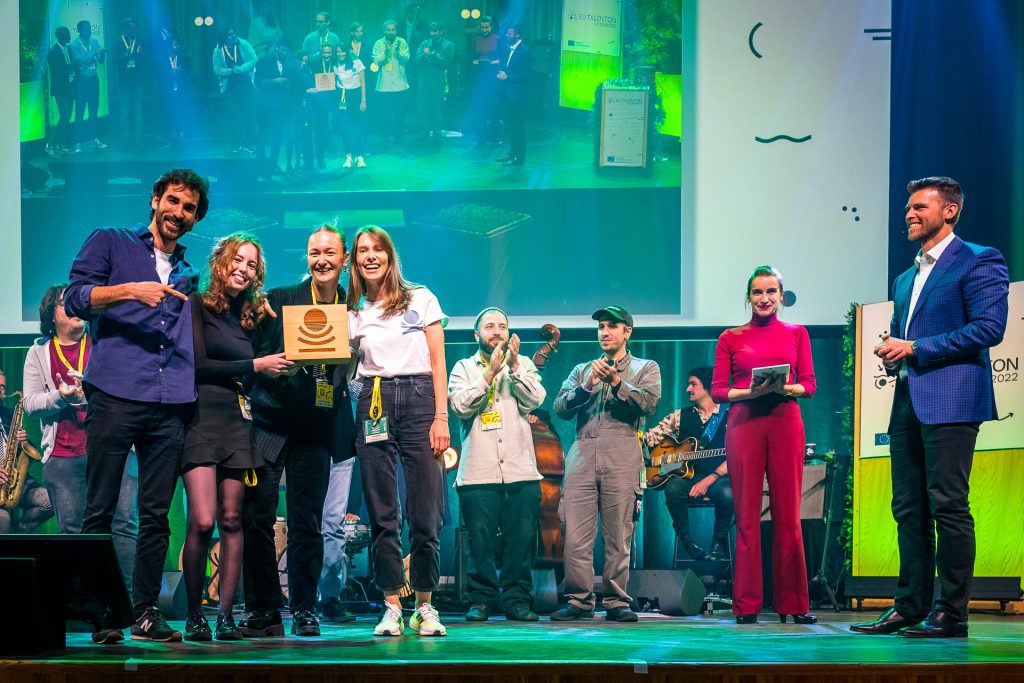
The 451 team 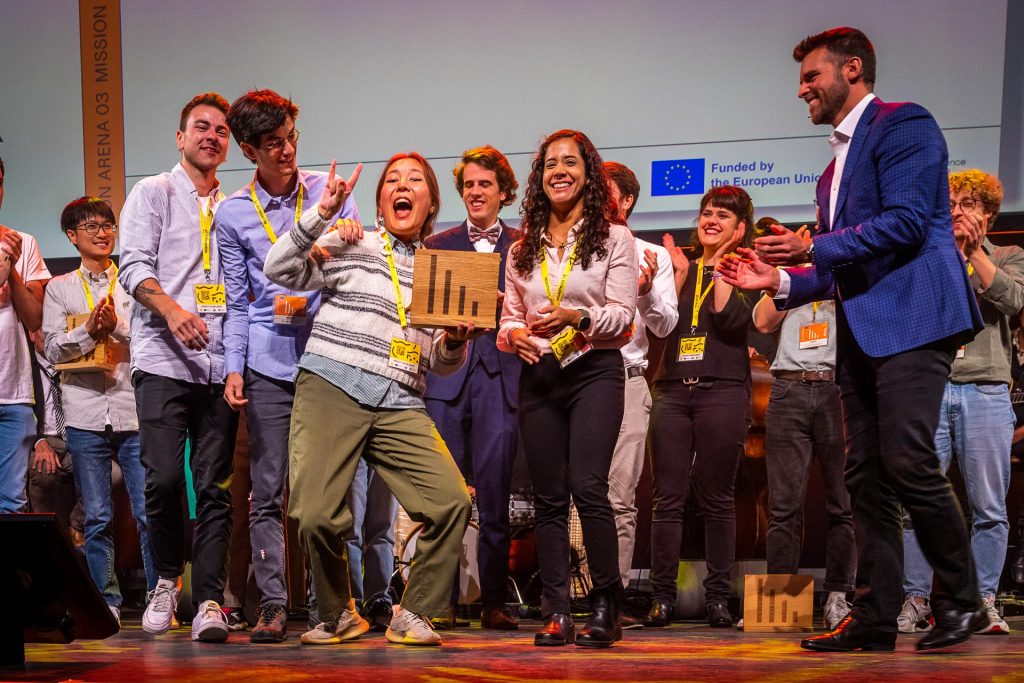
The Circulizers team 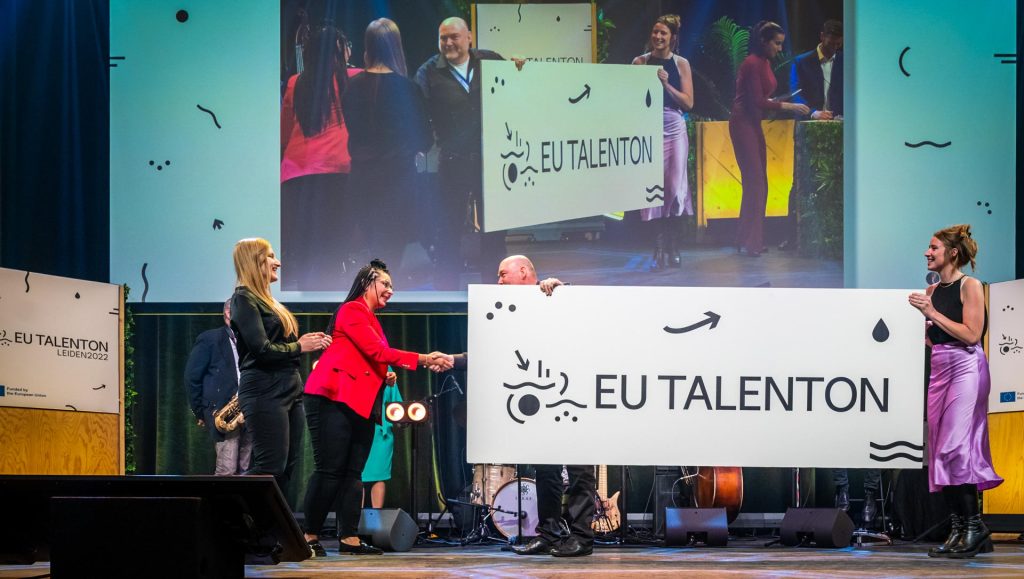
.
My Advice for CityChangers
Participate! Take part in different programmes that give you a chance to step out of your comfort zone. This is my advice to anyone who wants to develop both personally and professionally.
Be open to the information you receive, but don’t take everything for granted – filter it and adapt it to your interests and state of mind, and turn it around so as to have a positive effect. Take it as a learning point and testing platform for your skills.
I encourage you to stay tuned and meet each other at the second EU TalentOn in Katowice in 2024!
Check out the highlights of the 2022 EU TalentOn at their YouTube channel, and head over to our dedicated CityChanger’s profile to learn more about Elizaveta’s work with greenery policies and strategies as local climate change mitigation tools.

